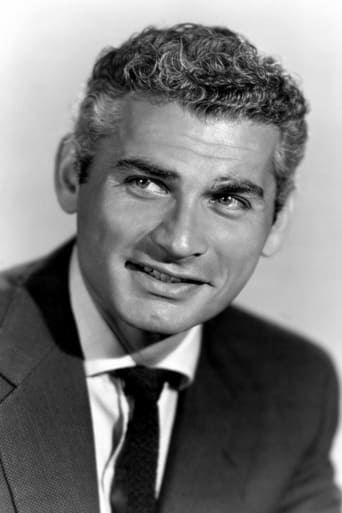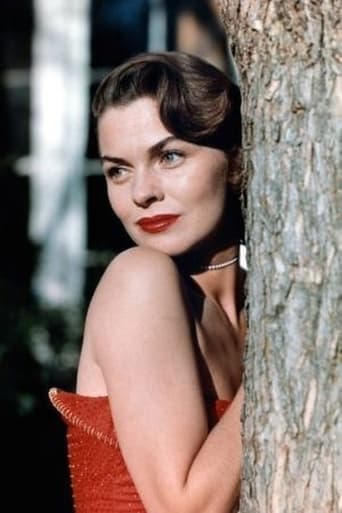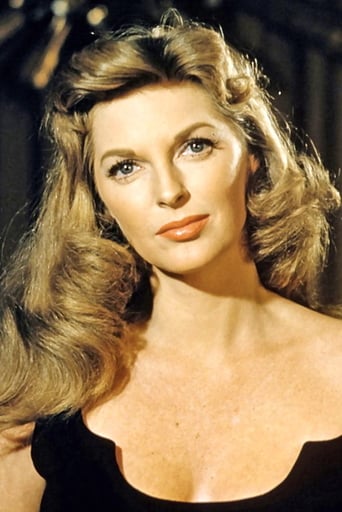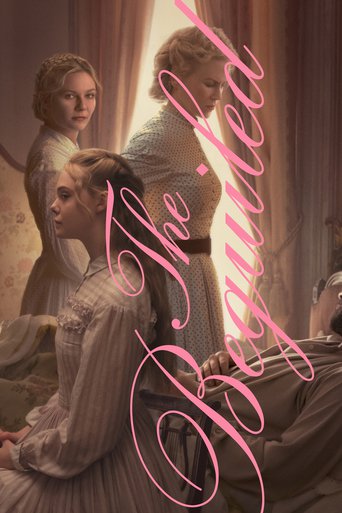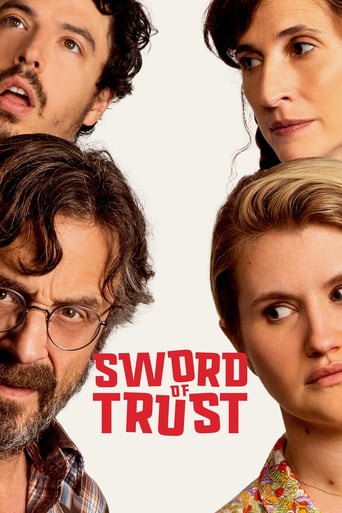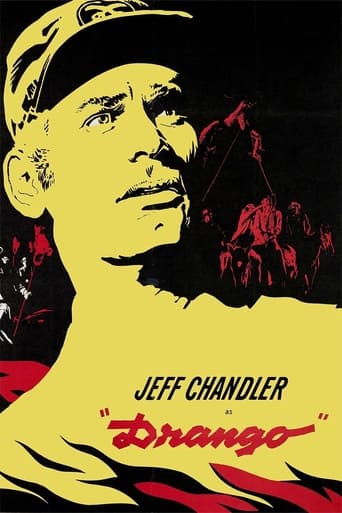
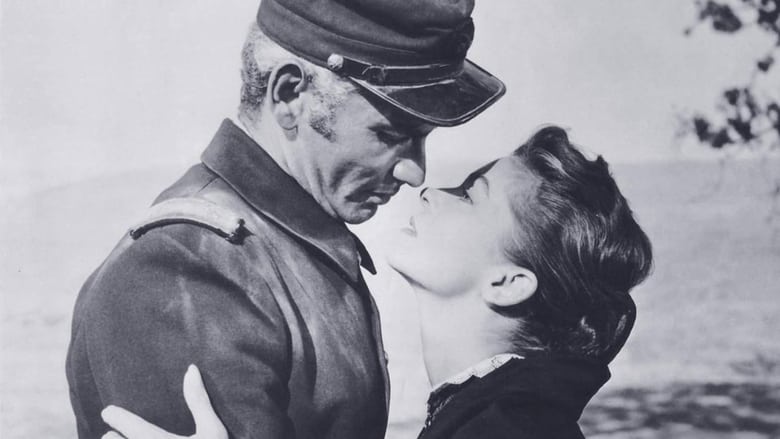
Drango (1957)
A few months after the end of the civil war, Major Drango is sent as military governor in a southern small town, whose citizens he must face the obstility.
Watch Trailer
Cast


Similar titles
Reviews
Jeff Chandler in the title role of Clint Drango has a disagreeable and difficult duty to perform as military governor of a small Georgia town that not even a year before he had ridden through with General Sherman's army. They did not leave much standing and when the town learns of his military record, Chandler's not left with much support for the difficult job he's trying to do. To bring peace to a conquered and proud people.The film starts with the lynching of northern sympathizer Morris Ankrum and his daughter Joanne Dru though she hates Chandler at first for not sending Ankrum to safety, she becomes his biggest supporter mainly because she has nowhere else to go.Behind the resistance is former Confederate officer Ronald Howard who never looked more like his father Leslie than in this film. He was certainly evocative of Ashley Wilkes another Georgia aristocrat. Donald Crisp is Howard's father here and Julie London is another southern aristocrat who Howard uses to gain information. Of course Ashley's attitude toward the conquering Yankees was light years different than than Ronald Howard's in Drango.Drango's not a bad western, but quite frankly the total absence of blacks from the film is puzzling. There are places in the south which did not have cotton plantations and hence no significant black population at the time of the Civil War. But looking at the mansions that Crisp and London have belies that notion for this section of Georgia. That absence makes Drango a decent, but very flawed picture.
Somber account of a Union soldier attempting to right the wrongs of war that left a community broken and sore, wrought with hate and anger towards "them dirty, rotten Yanks." The setting is Kinnesaw, Georgia, not long after the Civil War as malevolent feelings remain towards the North, with Major Clint Drango(Chandler)placed over the town, a type of military governing the citizens, but he desires for the people to start over, re-building their lives. This noble effort is constantly defeated by Clay Allen(Ronald Howard), Confederacy sympathizer and father to Kinnesaw Judge Allen(Donald Crisp), who wants "the South to rise again" and is secretly motivating his township to form a mob, thwarting everything good Drango wishes for them. The despicable lengths, such as burning a newspaper which kills the child of the father who runs it, and murdering Drango's fellow officer, and best friend, Captain Marc Banning(John Lupton)for which Clay will go prove that he will cause nothing but terrible repercussions to those he feels deserve to have won the war the Confederacy lost. Prices are paid for this mad goal, such as food rations stole, and in this the shooting of town physician, Doc Blair(Walter Sande), but no matter the obstacle he faces, Drango's will and resolve remains strong, as he continually runs up against it, this man simply wishes for the people of Kinnesaw to have a chance to begin again, without killing and death.Anchored by the strong central performance of Jeff Chandler(..who I'm not familiar with, which is a shame really), I really liked the thought-provoking script from Hall Bartlett, and while it does seem a bit one-sided at times, I think the themes of bringing divided groups together after a war left scars never to be fully healed and the attempt to reconcile with those you have hurt by helping the community start over are powerful enough. Really rock solid cast of no-names and the material is provocative enough, even if the ending is a bit too easy in it's resolution as Clay has the town in his grip and prepared to storm a Union base for supplies Kinnesaw needs, only to be impeded by the very man who has always loved him, realizing that his son has become a monster willing to lead people into a certain massacre. The "lynch mob" theme is again explored(..this material has a recurring use during this time)as Clay Allen is able to pull men together, exploiting their yearning for revenge, the deep-rooted, seething feelings of intense disgust for those who defeated them, killing their relatives, burning their crops, destroying their homes.What really adds a unique spin to this material is Drango's notorious past, how he led an army who actually caused the destruction across Georgia, how guilt and the sobering account of his part in a regrettable war have left him ashamed, fueling his goals to help those he caused such harm, lends a great deal to the film, I think. Chandler provides the anguish and regret, and it's etched clearly on his face throughout, and I think it's quite a performance deserved of praise. Joanne Dru is excellent as Kate Calder, a Kinnesaw citizen, opposed to the Civil War, whose father was lynched by Allen and others for his bold stance against the Confederacy. Dru becomes Drango's support system, at first bitter with him for how he talked her father out of leaving the town for the nearest fort. Julie London is Shelby Ransom, Clay's lover, knowing that he's responsible for the lynching and other devious activities in and around Kinnesaw, agreeing to seduce Banning for him. Crisp, Sande, Morris Ankrum(..as the lynched Henry Calder), and Twilight Zone veteran Barney Philips(..as the town reverend) head a strong cast putting faces and voices on those who all suffer for their eventual allegiance to Drango, understanding how he wishes to help, not destroy. I think the film effectively conveys the rift between both sides, how a war left those still alive wounded, and we are witness to the aftermath, with director Bartlett and Bricken choosing this specific location to speak about issues of that time. While maybe the ending is asking us to take a leap of faith that a people can put aside their feelings, embracing someone they find out had led the raid that positioned them for great misery and strife, hunger and suffering, believing that they can, in fact, overcome what ails them, I admire the filmmakers for the message they want to get across.
A rather dour Reconstruction Western that's probably too earnest for its own good. Writer Hall Bartlett's heart is in the right placereconciling North and South following the Civil War. Union Major Drango (Chandler) wants to unite rebellious Confederate town around a regime of humane occupation, despite widespread resistance. The supporting cast is familiar from about every popular TV series of the dayStone, Phillips, Sande, Ankrum, Baer. Too bad the powerful Donald Crisp is largely wasted in a circumscribed role, and why Julie London's presence other than to build box-office appeal is unclear to me. In fact, her romantic subplot with Lupton sprawls the story without strengthening it. Also, reviewer Lorenellroy is rightChandler's major comes across as too stiff and unappealing for a central character. His besieged Major should be serious, but the seriousness is finally carried to a deadening degree. Bartlett was interesting as a producer, especially with Navajo and Unchained. Here, however, I'm afraid he tries to do too much with a screenplay that ends up in too many talky subplots. Then too, direction should have been left to a better stylist since the core material had potential. In passingnote that no reference to slavery or appearance of a black person occurs anywhere in the movie, a rather startling omission for a film dealing with the post-Civil War South. My guess is that the producers, like others of the period, didn't want to risk dealing with a sensitive subject at a time when Jim Crow laws still prevailed below the Mason-Dixon Line. Anyway, considering the number of Westerns on TV and in theatres in 1957, it's probably not surprising that despite good intentions and a fine performance from Joanne Dru this dour little oddity has remained lost in the mix.
This film reveals a lot about the reconstruction era in the U. S. after the Civil War. It is amazing to see this era explained without an agenda or politically correct spins that Americans are fed now. The post Civil War era in the South shows the hardships the people faced and how one honorable Yankee military governor attempts to handle it.


